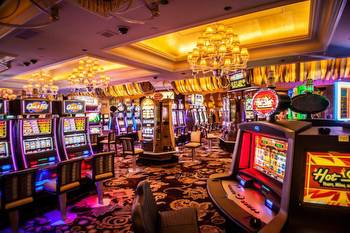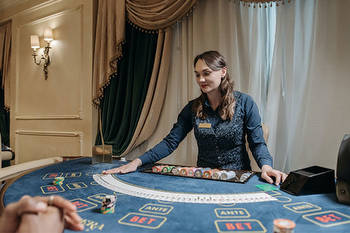How the gambling and betting market influence the economy

Casino gaming has grown significantly over the last few decades, and legalisation is only part of the casino gambling-related growth story. High-tech features such as live casinos have introduced a new level of realism to the experience, while technological enhancements have led to more accessible and convenient ways to play.
More recently, the pandemic has put a stroll on the industry, with local casinos being forced to close their doors as they were not seen as essential activities. However, brick-and-mortar establishments are only one part of the industry. Players who love to bet have easily migrated towards online betting sites.
The online gaming industry has seen incredible growth in recent years. The rise of the Internet and mobile technology has opened up an entirely new avenue for casinos, not to mention the chance for players to play free slots UK when they want, where they want, and on any device. In addition to technological developments, the gambling community has seen lesser resistance from the government, which began to see the industry as a positive force for economic growth.
With recent developments happening very fast, it raises the question of the economic influence of the gambling and betting market. We can find an answer to this question in an Ernst & Young LLP report commissioned by the Betting and Gaming Council (the BGC) regarding the economics of casino gambling and its contribution.
According to the report published at the beginning of 2021, the British economy benefited from gambling economic activity from £7.7bn in 2019 alone. This figure represents the contribution of the gambling market to Britain’s Gross Added Value. Breaking down this number, the report shows that £2.6bn was generated directly by BGC members, while £2.9bn was generated by their supply chain. A further £2.2bn was created through spending by BGC members’ employees and suppliers’ employees.
The market employed a total of 61.000 people in activities related directly to gambling, and it generated a further 58.000 jobs indirectly. According to the data analysed for this report, the sector is a road opener for many young people. In 2019, 19% of the workforce was under 25, and more than half (51%) was under 35 years old. The report expects that the number of employees will increase by 62.000 people this year alone.
The providers of free slots to play for fun contributed an estimated £4.5bn in tax revenue in 2019. This figure includes the contribution of excise duties alongside corporation tax and employment taxes. When looking at the data by sector, the remote, namely online casinos, have made the largest taxes contributions in 2019, of £1.8bn. Next, licensed betting operators (LBOs) paid £0.9bn, while high-end casinos were less than £0.1bn, and casinos generated £0.4bn in taxes.
It’s worth noticing how the online betting and gaming sector is the largest. An interesting observation is that the sector accounts for 40% of the industry’s activity, even if some of the largest firms that administer betting sites operate overseas. The report shows that most employees (70%) working in the remote sector are based in the UK.
Future predictions about the economic impact of the gambling and betting market made by Technavio show that the sector is expected to grow £2.30bn in the next three years. The driver for this increase in revenue will remain the best online gambling sites. The country’s dominance and realisation of revenue from online gambling platforms are primarily due to the limited restrictions on these platforms. This has led many more players to try their luck online compared to those who prefer land-based casinos.
Deregulation has had a beneficial impact on the development of the British gambling sector. Still, one challenge to this growth is the exposure of underage children to online gambling. Advertising and betting normalisation for children are considered serious threats by government officials, who are working to restrict them.






























